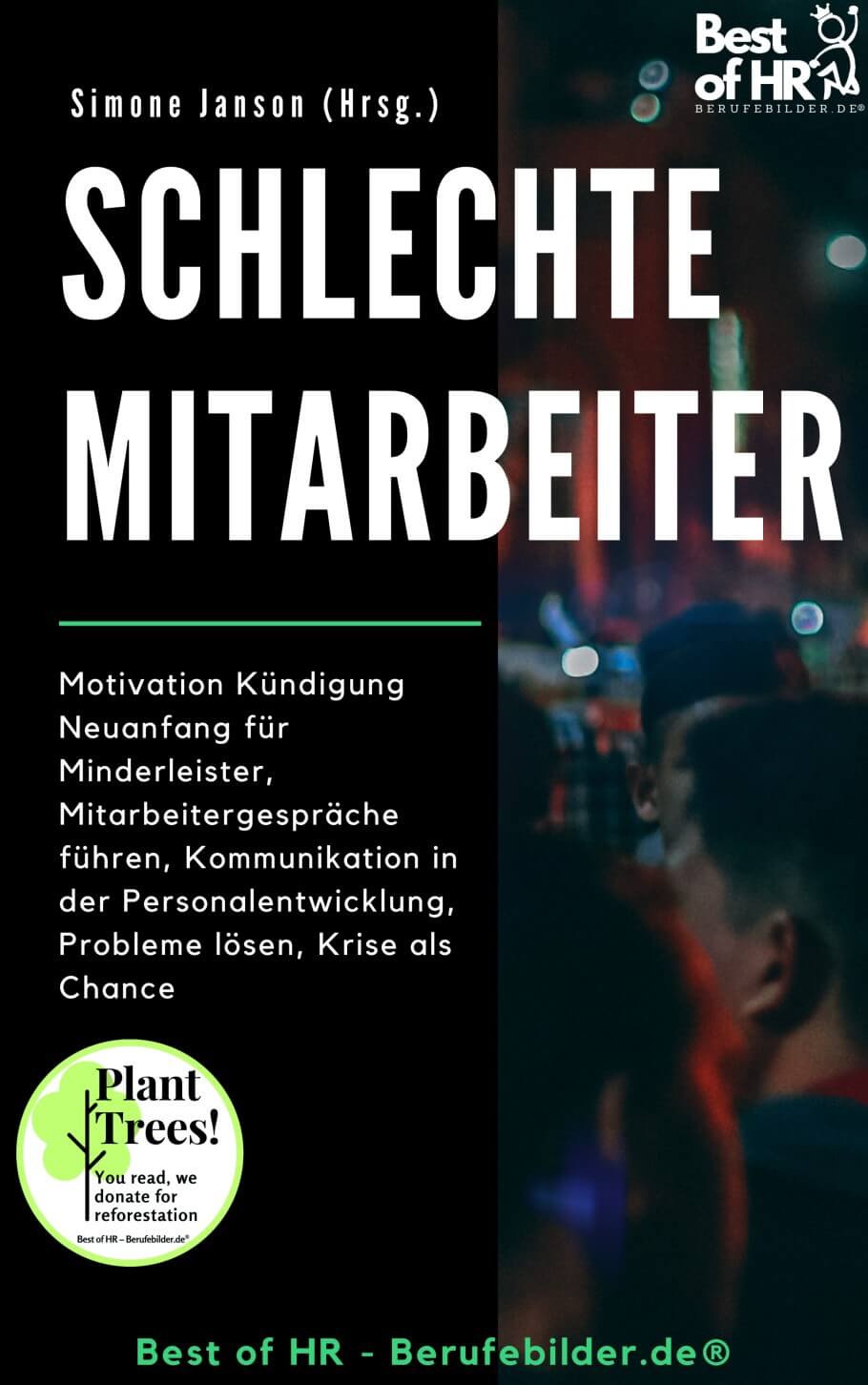Your shopping cart is currently empty!
For their successful, good life Information you really need: Government-funded publisher, awarded the Global Business Award as Publisher of the Year: Books, Magazine, eCourses, data-driven AI-Services. Print and online publications as well as the latest technology go hand in hand - with over 20 years of experience, partners like this Federal Ministry of Education, customers like Samsung, DELL, Telekom or universities. behind it Simone Janson, German Top 10 blogger, referenced in ARD, FAZ, ZEIT, WELT, Wikipedia.
Disclosure & Copyright: Our articles are written and edited by humans, and in some cases like this, we use the assistance of artificial intelligence to optimize texts. Image material created as part of a free cooperation with Shutterstock.
Recruiting & Cultural Fit: The top 10 job interview questions
By Simone Janson (More) • Last updated on October 02.07.2023, XNUMX • First published on 30.05.2018/XNUMX/XNUMX • So far 5312 readers, 2670 social media shares Likes & Reviews (5 / 5) • Read & write comments
The cultural fit will Recruiting checked too seldom. In doing so, cause new Employees, which do not fit the corporate culture, numerous problems and Costs. The following interview questions will help you to find exactly the right employees.

- What is cultural fit in companies?
- The concept of cultural fit
- Why is cultural fit so important?
- What makes exactly the right employees so valuable?
- Find the right employees for your corporate culture
- It always depends on how you define corporate culture
- How can the interview help to determine the applicant's cultural fit?
- Conducting the interview correctly: when are employees culturally appropriate?
- The 10 best questions about Cultural Fit
- Conclusion: The exact fit of the employee is important for the company's success
- Top books on the subject
- Read text as PDF
- Advice on success, goal achievement or marketing
- Book eCourse on Demand
- Skate eBook as desired
What is cultural fit in companies?
You want to find employees that are like identical twins to your best Companys fit? Then you should include the cultural fit, the so-called cultural fit, in recruiting more and more specifically.
Cultural fit has become quite a buzzword in today's business world. But what is behind it? Cultural fit describes the way in which an employee fits into a company. Cultural Fit is the Term, which one often hears in this context these days. It is used in recruiting and application processes to describe the hiring manager's assessment of a potential employee's suitability.
The concept of cultural fit
The books on the subject (advertising)
The term "cultural fit" is usually used with the Concept associated with matching the right person to the right company, but it can also be used to describe the same phenomenon in a less literal sense. Companies can no longer afford to hire people who aren't a good fit for their organization - people who aren't in it Team fit and therefore cannot exploit their full potential.
Because on Workplace we communicate, network, hire good people and make decisions all day – and the Peoplewho do these things, namely our employees, are the ones who get it right. They are our colleagues, our friends and our teammates. They are the ones who keep our businesses running and who ultimately help make them successfully close.
Why is cultural fit so important?
Organizations strive to create a cohesive and harmonious work environment for their employees. But what exactly does cultural fit mean? This term is often used, but its Definition and Significance may vary by company. At its core, cultural fit refers to the compatibility between a person's values, beliefs, and behaviors and organizational culture.
Hiring people who fit the culture of the company is critical, as it ensures that the company's core values align with people's personal beliefs and work ethics. A strong cultural fit can lead to higher job satisfaction, higher productivity, and better employee retention. On the other hand, a poor cultural fit can create friction in the workplace, which in turn leads to low morale, high turnover, and lower productivity. Achieving a cultural fit is not always a straightforward process, however. Companies have to consciously deal with their culture and actively follow it Candidates find people that align with their values and goals.
What makes exactly the right employees so valuable?
Discounts for your success (advertising)!
The cultural fit is extremely important not only for companies, but also for employees - because only if it is right does he have the chance to be happy feel, can concentrate on his job and do the work optimally. Because only a good cultural fit leads to an optimal working environment.
Good, precisely fitting employees are therefore incredibly important for every company. A successful employee fits into their company and its culture. But there are always new employees who do not “fit in” immediately. Instead of firing such employees, you should give them the opportunity to learn and grow. With a little training, they will get to know the company culture and adapt more quickly. Once they are comfortable, you can begin the onboarding process.
Find the right employees for your corporate culture
However, there is one Problem: When it comes to hiring new employees, many companies focus solely on them qualifications, experience and skills of the candidates. However, there is another important factor that is often overlooked: cultural suitability. Cultural fit refers to how well a potential employee's values, beliefs, and personality traits align with those of the organization.
Hiring someone who is culturally mismatched with your company can lead to a number of problems, such as poor work ethic, high turnover and lower productivity. Much of the miscasting is due to a poor cultural fit.
It always depends on how you define corporate culture
If the cultural fit is defined, it means that the employee fits the culture of the company. Achieving a cultural fit is not always a straightforward process, however. Companies need to consciously engage with their culture and actively seek candidates who align with their values and goals. To avoid problems from the start, try HR and Recruiter right from the start to find out exactly whether applicants fit into the corporate culture.
The corporate culture is in turn defined as a set of beliefs, values, practices and mental models of a Organization. The culture is shared by all employees, but also by customers and suppliers shared. Culture affects how employees interact in the workplace and how they behave with each other, how they treat customers and how they treat suppliers.
How can the interview help to determine the applicant's cultural fit?
But it's often difficult to predict exactly how the collaboration will go, because not every culture is outwardly visible to everyone, and it's interesting to see how different the same person can look when they appear in different environments.
job interviews are therefore a good opportunity for both sides to get acquainted with each other and to clarify whether a cooperation is fruitful. A job interview not only asks about the applicant's skills, but also implicitly about cultural suitability. However, this often results in a number of misunderstandings, mostly due to the lack of a clear one Communication result:
Conducting the interview correctly: when are employees culturally appropriate?
And since the cultural fit as the mutual understanding of values, norms and common interests between the interviewer and the Candidate can be defined, employers often use the cultural fit to assess whether the candidate fits into the company.
But how can recruiters use this valuable information to make a cultural fit interview more successful. When should you consider an employee culturally appropriate and when should you reject them? But where do you draw the line? And what standards do you use to define cultural fit for your own company? Below we will take a closer look at the concept of cultural fit and try to identify some of them Ask to answer.
The 10 best questions about Cultural Fit
The linchpin of cultural fit is the answers applicants give in the job interview. Therefore, you should ask the appropriate questions. Then in the interview pay particular attention to answers based on experiences, to stories of past experiences, to examples that candidates give and what priorities they set. Possible questions could be:
- In your opinion, what makes good teamwork and what are your experiences? : Teamwork occupies an important place in most jobs. With this question you get to know whether the basic attitude to team work is positive and if and what experiences you have made with it. In the experience, make sure that they are consistent and relevant with the requirements of the job advertised by you.
- What do you think enables really good performance? : An indirect question about motivation, simply on an objectified level. However, since this answer also puts a lot to the power of abstraction, it should only be given to agile candidates for certain positions. You can also ask this question less openly: "What do you think are the prerequisites for above-average performance?"
- Tell me as specifically as possible what is particularly important for you in a good working atmosphere. : Here you can see a lot from examples and experiences. Check it out to learn examples or have important things specified. Asking a scale can also help: How important is “team spirit” on a scale of 1-10 to you? Or: Which one or two points are the most important for you?
- What does a company owe its employees? Again, this is an unexpected and extraordinary question, but for that very reason not only the answer, but also the behavior or the reaction to it can reveal much. It forces interviewees to think outside the box and to think critically. This shows which values of a corporate culture are important to him and what he understands, for example under fairness or opportunities for further development, and what ultimately motivates him.
- Please describe to me your ideal supervisor. When describing ideal images or ideal persons, people are always strongly encouraged to express themselves carefree and "let your imagination run wild". There may be areas in which you would like to deepen certain information (character, personality, sensitivity, expectation of freedom, etc.) with a follow-up question.
- What is a good working environment in which you feel comfortable? Is it the human environment, the team and the supervisor? Or are other criteria important, such as the spirit of innovation or an employee culture that respects and encourages employees? Of course, it is also important to compare the criteria mentioned above with those of your company's working environment and to observe similarities.
- Which positive and negative factors played an important role in your last job? The question leading to a more concrete answer, what has fallen and what not. Pay attention to whether these are relevant factors for your case, and how the relationship between positive and negative realities, whether it is just frustration and allegations that come up, or whether the positive events are paid attention - that says a lot about the fundamental positive or negative attitude of a candidate. For example, who leaves the previous employer only because of anger and disappointment, that is, without constructive goals such as getting ahead, is hardly the ideal candidate.
- What kind of people do you enjoy working with? Indirectly, this shows the expectation of teammates, a working environment, the nature of the candidate and his tolerance range. Possible examples from practical experience are of particular interest. Together with an experience, the statement gains credibility and becomes more concrete. The way in which it is used (such as wording, priorities, people involved, tasks, etc.) is interesting and enlightening.
- What characterizes a team in which you feel well? Is it a “dream team”, is it realistic claims and expectations that fit the personality of the candidate or is it an answer that already includes your interview information, the environment and the job profile? Of course, pay particular attention to the congruence with the existing team in which the candidate would come to be employed.
- What is your particular value in professional life? Another question on this topic could be: What do you value in your professional life? This allows you to find out interesting things about personal values and preferences as well as conclusions about behavior in the workplace. What is of interest here is the correspondence of the relevant characteristics with the important points of the requirement profile and the extent to which the applicant's values correspond to those of your corporate culture. Similar questions can just as easily be formulated with other subject areas in order to obtain more detailed and individual information.
Conclusion: The exact fit of the employee is important for the company's success
The exact fit of the employee to the corporate culture is enormously important for the successful integration of the employee in the company and is too often underestimated.
However, with these questions you have a good one Vorlage, in order to filter out from the applicants from the outset the employees who exactly match your corporate culture.
Top books on the subject
Read text as PDF
Acquire this text as a PDF (only for own use without passing it on according to Terms and conditions): Please send us one after purchase eMail with the desired title supportberufebilder.de, we will then send the PDF to you immediately. You can also purchase text series.
4,99€Buy
Advice on success, goal achievement or marketing
You have questions about Career, recruiting, personal development or increasing reach? Our AI consultant will help you for 5 euros a month – free for book buyers. We offer special ones for other topics IT services
5,00€ / per month Book
Book eCourse on Demand
Up to 30 lessons with 4 learning tasks each + final lesson as a PDF download. Please send us one after purchase eMail with the desired title supportberufebilder.de. Alternatively, we would be happy to put your course together for you or offer you a personal, regular one eMail-Course - all further information!
29,99€Buy
Skate eBook as desired
If our store does not offer you your desired topic: We will be happy to put together a book according to your wishes and deliver it in a format of yours Choice. Please sign us after purchase supportberufebilder.de
79,99€Buy
Here writes for you
 Simone Janson is publisher, Consultant and one of the 10 most important German bloggers Blogger Relevance Index. She is also head of the Institute's job pictures Yourweb, with which she donates money for sustainable projects. According to ZEIT owns her trademarked blog Best of HR – Berufebilder.de® to the most important blogs for careers, professions and the world of work. More about her im Career. All texts by Simone Janson.
Simone Janson is publisher, Consultant and one of the 10 most important German bloggers Blogger Relevance Index. She is also head of the Institute's job pictures Yourweb, with which she donates money for sustainable projects. According to ZEIT owns her trademarked blog Best of HR – Berufebilder.de® to the most important blogs for careers, professions and the world of work. More about her im Career. All texts by Simone Janson.


















Post a Comment